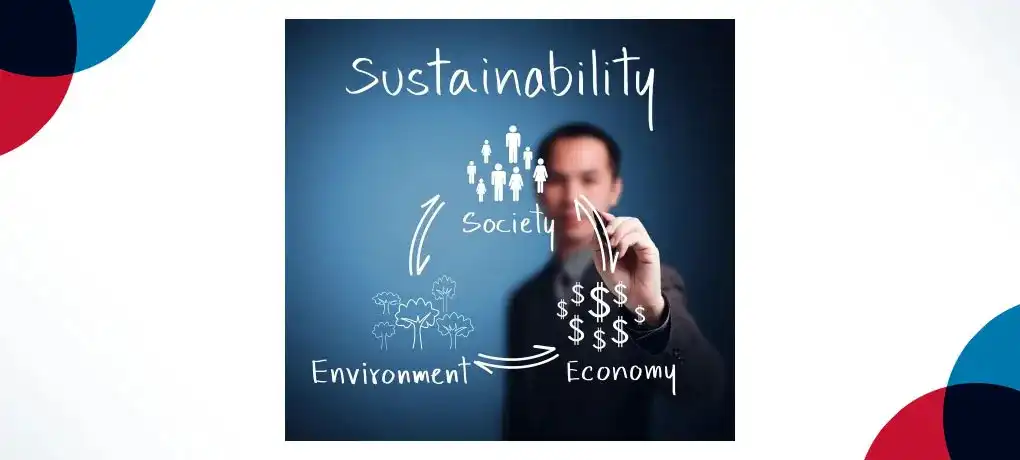The importance of corporate governance has been highlighted by a number of events which have shaped the landscape of businesses worldwide. After a series of major corporate scandals in the early 2000s — the biggest of which was Enron — the United States government responded by enacting the Sarbanes-Oxley Act in July 2002. Since its implementation, the Act has set stricter corporate governance standards for public company boards in the United States.
Need for Compliance on Governance
The Sarbanes-Oxley Act of 2002 is federal legislation, so entities are expected to comply if they do not want to face legal sanctions ranging from fines worth millions of dollars to years of imprisonment. This approach to corporate governance is known as “comply or else.” All entities are expected to comply, no exceptions.
From a certain standpoint, this approach works because it makes entities equally accountable, but critics say that a one-size-fits-all model for corporate governance isn’t applicable all the time.
So what else does work?
For some other countries, there’s another line of thinking for corporate governance. This approach is known as “apply or explain.” Entities are given a set of standards to follow, but they’re not mandated to comply with everything. They can choose which principles apply to them; however, they are expected to explain and be able to justify the reasons behind their choices.
The History of “Apply or Explain”
The country that first adopted an apply-or-explain approach is Netherlands. In Jan. 1, 2004, Netherlands introduced the Dutch Corporate Governance Code (last revised in Dec. 10, 2008) after nine months of hard work by the Corporate Governance Committee. Headed by Morris Tabaksblat, former CEO of Unilever, the Committee updated the corporate governance practices in Netherlands in response to domestic and international developments. Tabaksblat believed that not enough attention was given to necessary checks and balances within Dutch businesses, leading to weak corporate governance.
The new Code introduced a new concept, “apply or explain.” In the first version of the Code, the approach was “comply or explain,” a direct lift from the United Kingdom’s British Combined Code, but the Dutch felt the word “comply” was inapplicable because it still denoted a mandate. They decided that the proper approach was to “apply” instead of “comply.”
Under this Code, shareholders of a company can ask the board to provide an explanation in a general meeting. Shareholders have the right to question the suitability of the board’s decisions, and in case of a deadlock, they also have the right to change the company’s corporate governance policy.
How different is “apply or explain” from “comply or else” and even “comply or explain” for that matter? Approaches that ask companies to comply call for the government to enforce the law, while the apply-or-explain approach call for the shareholders to enforce the Code.
It raises the interesting idea of motivation. Boards are not complying only because the law says so. Under “apply or explain,” boards are seeking to develop their own policies for the sake of their shareholders.
King Report on Corporate Governance
For a time, only Netherlands followed an apply-or-explain approach for corporate governance. Then, in 2009, South Africa released its King III Report which carried a non-legislative apply-or-explain approach as well. King III is the third part of the King Report on Corporate Governance issued by the King Committee on Corporate Governance. The first report, King I, was released in 1994 and the second report, King II, was released in 2002.
The King Report on Corporate Governance — specifically King III — is considered to be the world’s standard on corporate governance. It is not founded on legislation, but rather on practical principles and proven practices. And aside from adopting an apply-or-explain approach which is groundbreaking in itself, the King Report also views strong corporate governance as a product of ethical and effective leadership. Most importantly, it places emphasis on sustainability as the primary goal. All entities are expected to operate in a sustainable manner.
In the King II Report, sustainability was in its own chapter, causing entities to report on it independent of other factors. But what the Committee — headed by retired Supreme Court judge Mervyn King — is really interested in is how sustainability is integrated in all other aspects of corporate governance. Hence, the King III report was introduced. In this latest installment, entities are recommended to release an integrated report in lieu of a financial report, aside from a separate sustainability report.
Take note that the King III Report “recommends” and doesn’t “mandate.” Like the Dutch, the South Africans believe in giving entities the freedom to choose principles and practices that are applicable to their processes, as long as they can justify their decisions.
About the King III Report
But beyond the approach it takes, the King III report also defies the norm by asking for more than a financial report. It requires entities to submit an integrated report that reflects economic impact and achievements in sustainability. The Committee believes that financial reports don’t offer the complete picture of what entities do. For example, it’s not enough for companies to look out for their shareholders’ best interests. They should also be able to report on and prove the positive impact they leave on the communities within which they operate.
This, perhaps, is what makes the King III groundbreaking. It gives entities more freedom by allowing them to select their own corporate governance practices, but it also hands them more responsibilities by asking them to produce integrated reports. The combination of the apply-or-explain approach and the focus on sustainability leads to a higher level of accountability and transparency, two things that strong corporate governance aims to achieve.
Of course, no approach is perfect. Critics of the apply-or-explain approach say that not all entities will be able to make correct choices for their processes, leading to mistakes that will be discovered only later on. The risk of a trial-and-error outcome is higher especially when entities do not fully understand the reasons behind the corporate governance standards.
However, supporters of the King III report believe that the hands-on nature of the apply-or-explain approach will leave no room for ignorance. For entities to be able to justify their choices, they must have full understanding of how the corporate governance standards work.
The King III report requires entities to be accountable for their actions and to be transparent in all their activities
How Can African Organizations Achieve Better Corporate Governance?
A board portal solution doubling as corporate governance software such as Convene can help them achieve these goals. Convene facilitates the whole board meeting process from sending out invitations to archiving post-meeting documents. Every action is tracked and recorded, allowing for an automatic increase in transparency and accountability.
Using Convene, boards of organizations in South Africa will be able to adhere to the requirements of the report and achieve better performance.
To know more about Convene, request for a demo or trial.
Jess is a Content Marketing Writer at Convene who commits herself to creating relevant, easy-to-digest, and SEO-friendly content. Before writing articles on governance and board management, she worked as a creative copywriter for a paint company, where she developed a keen eye for detail and a passion for making complex information accessible and enjoyable for readers. In her free time, she’s absorbed in the most random things. Her recent obsession is watching gardening videos for hours and dreaming of someday having her own kitchen garden.










